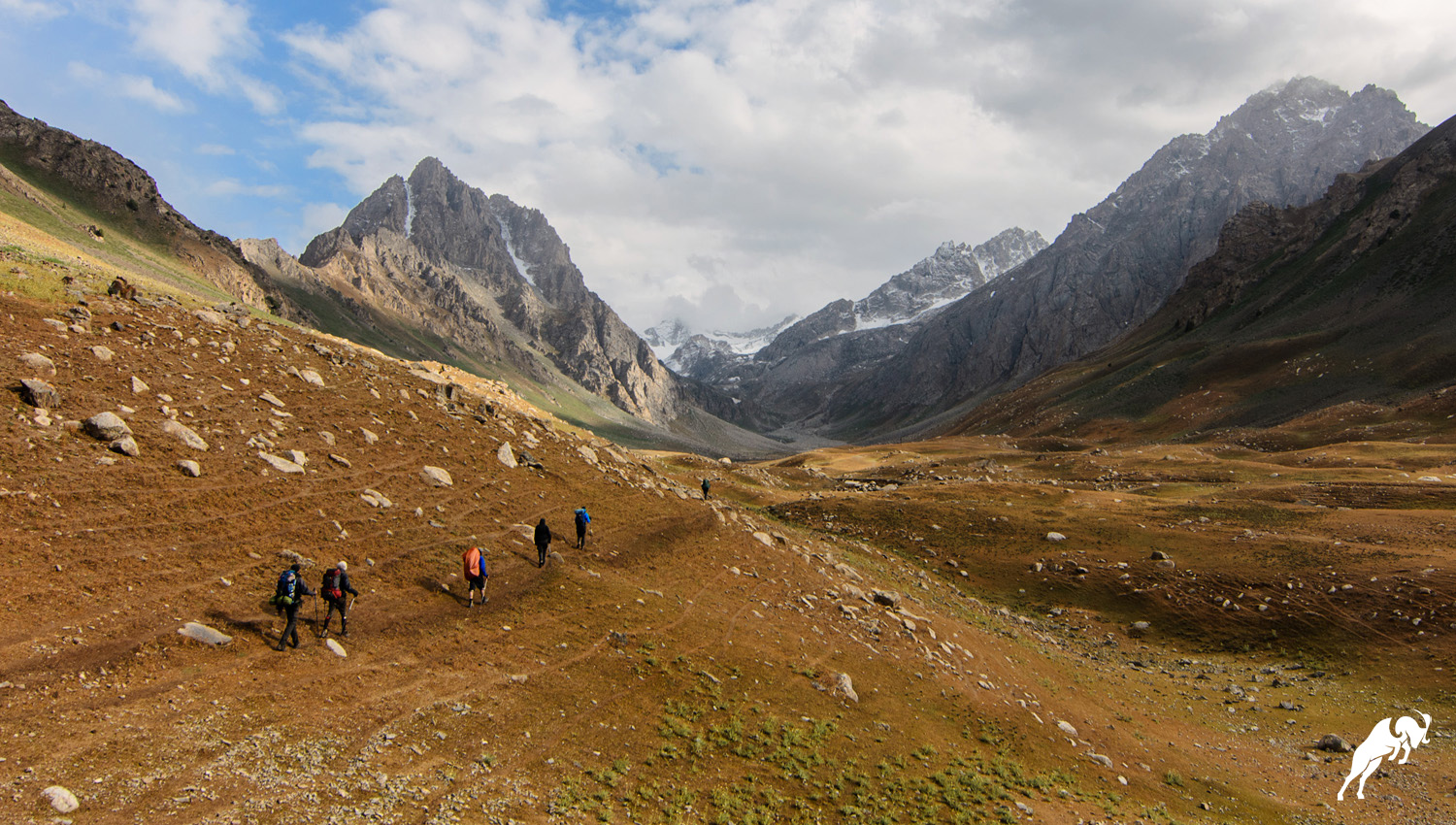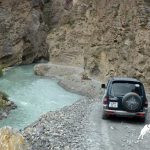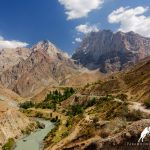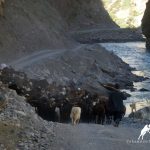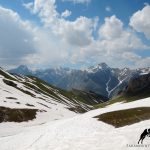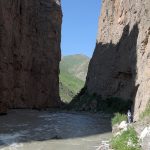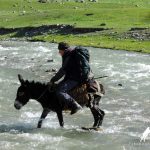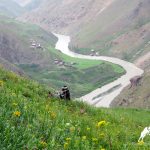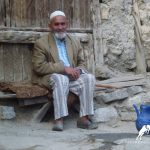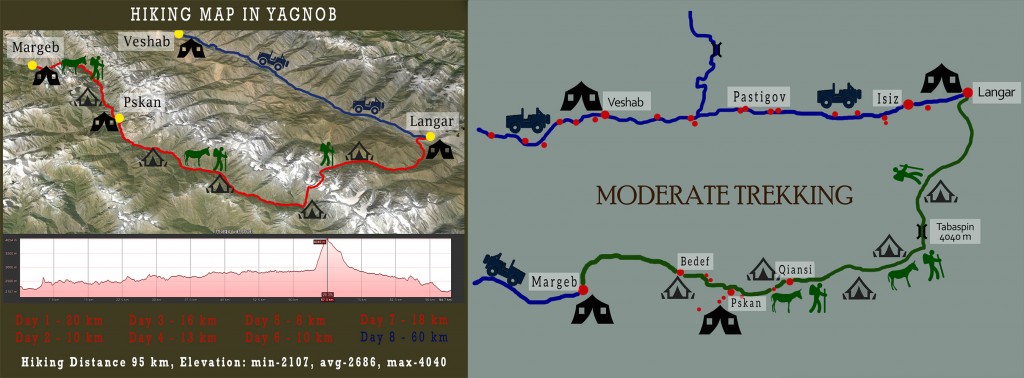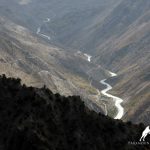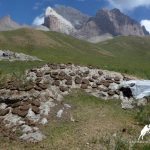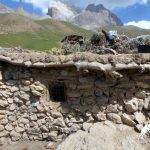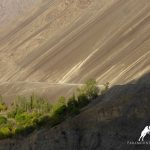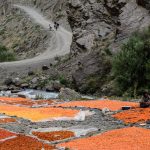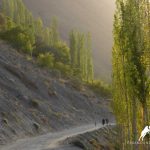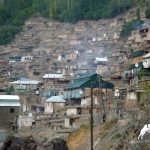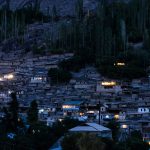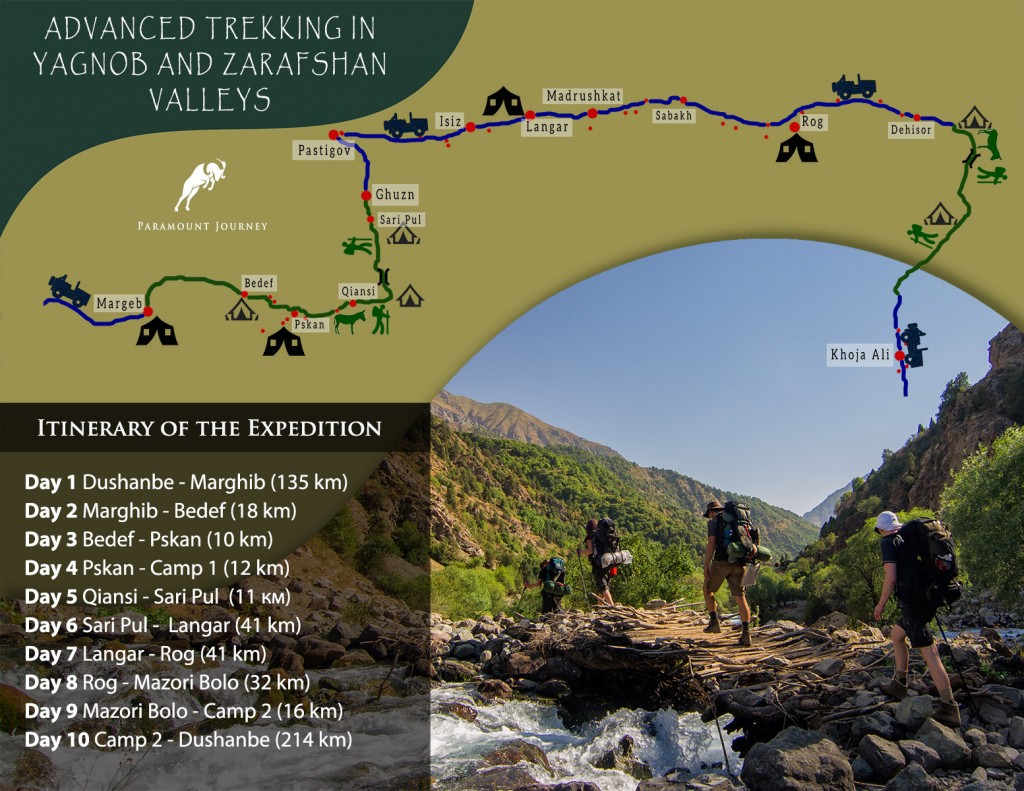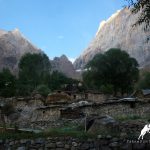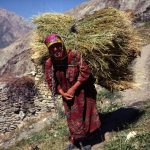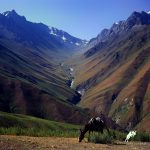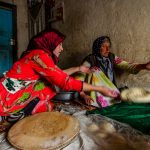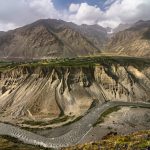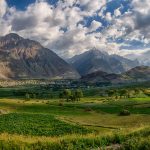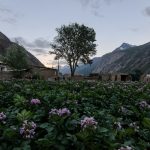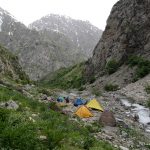Paramount Journey’s expeditions take place in areas where time has stood still, far beyond the reaches of development and the well-trodden tourist trail. Every part of Tajikistan has its individual character, from pristine alpine lakes and thundering rivers, to lush green valleys and empty high-altitude desert plains. Often you will see several of these unique ecosystems within a single day, though of course we recommend you stay longer to understand and appreciate the beauty of the landscape and to get to know the fascinating cultures of the friendly people who live there.
Even if you have only a limited time available, you can join us in our exploration of the Yagnob valley and the Zerafshan Valley. These expeditions offer you the chance to stay with local families, the surviving descendants of the ancient Sogdians, whose lifestyle was unaffected by time and external influences. The tremendous mountainscapes will surround you each step along your journey, a poignant and majestic reminder of the might of the natural world and its impact on its inhabitants. We offer several ways of exploring these stunning valleys, on foot or by bike, so whatever your fitness level and whatever your budget, there is ample opportunity to explore.
The Yagnb Valley sparks the imagination of any explorer. This remote, secluded and hardly visited valley has been inhabited for thousands of years by the Yagnobis, thought to be the last remaining people to speak the ancient Sogdian language. Only a few still live in this virtually untouched part of the world.
You will follow the course of the river, passing along mountain slopes fringed with wild alpine flowers. The trekking opportunities in Yagnob are vast but most of the treks are moderate and advanced due to the steep and challenging passes. The Tabaspin and Rost passes that lead to the Upper Zerafshan Valley are frequently blocked by avalanches and snow. In addition, there is some difficulty in terms of arranging donkeys and local donkey handlers.
That being said, it is possible to do an easy trek, staying overnight at a local family house. As you can easily do this with a light backpack, there will be no need to have a donkey handler or a donkey. These accommodations are not official guesthouse or homestays, but they are run by friendly owners who are always happy to host travelers. If possible, it is best to reserve your accommodation in advance because there are only two free rooms suitable for hosting in each of these local houses.
Day 1
Welcome to Tajikistan! On arrival at Dushanbe airport, you will be met by your guide and transferred to the hotel. For the rest of the day you can rest or explore Dushanbe.
Day 2
We start our journey towards Yagnob over the Anzob mountain pass, Overnight at the guesthouse in Margeb (135km , 3 hours). The village is located in dramatic location surrounded by jagged peaks, with the giant Zamin-Karor rock wall looming over it from behind.
Day 3
The starting point for this trek is Margib, a village pinned against the rock face of Zamin Karor, with jagged peaks looming all around. You will hike east along the bottom of the river valley to Bedev – the first Yagnobi village – which typically takes around seven hours. Even this close to ‘civilization’, the people are cut off by ice and snowfall for six months of the year, and the road along the valley floor is little more than a dirt track.
Distance: 7 hours (18 km)
Accommodation: Overnight at Ibrahim’s family house
Day 4
The first part of today’s trek is an easy stroll along the banks of the Yagnob River. The path winds its way through three mountain villages and over a couple of small bridges before heading towards the right hand side of the valley. You will reach the village of Garman by the afternoon, where you will stay in the Sanginmurod’s family house. The village is split in two: Upper Garmen and Lower Garmen, and there two families in each. They are friendly, keen to talk and introduce you to their traditions, even if you only share a handful of words in common.
Distance: 12km, 7 hours, +600m/-450m
Accommodation: Overnight at Sanginmurod’s family house
Day 5
Today, we will have an opportunity to hike to the most remote village in the southern section of the Yagnob Valley, tucked within a beautiful alpine meadow. Explore two small villages commonly called Qul, home to just five local families. For an authentic experience, you will be hosted at Hussein’s family house for lunch before trekking down to the Pskan village to spend the night at Saidmurod’s homestay.
Distance: 13km, 6 hours +450/-350m
Accommodation: Overnight at Saidmurod’s homestay
Alternatively, you can end your trek here and get transferred back to Dushanbe or your next destination.
Day 6
After exploring Pskan – the biggest village in the valley – we head to the last village in the Yagnob Valley, approaching from the eastern side, which is inhabited by Tajiks. On the way, we will pass through a few interesting villages, some of them abandoned since the villagers were relocated by the Soviets to work on the cotton fields in the 1950s. In the late afternoon, we will reach Kirronte to spend the night, a peaceful village that is home to just three families.
Distance: 11km, 5 hours, +630m/-440m
Accommodation: Overnight at Kirronte village
Day 7
After breakfast, we will follow the zigzag of the path down to the Yagnob Gorge where our driver will be waiting to transfer us to Dushanbe. En-route, we will have lunch in Pskan village before meeting our driver on the other side of the bridge.
NOTE: It will be possible to drive to some of these villages by jeep as soon as the bridge in the Yagnob gorge is built. The Yagnobi people have attempted to build it for several years but it has been delayed by a lack of finances or weather disease caused by an increased water level in the Yagnob River.
This Expedition includes a trek over Tabaspin Pass (4040m ) and further descend towards Zarafshan river valley. The mountain pass does not require any technical mountaineering experience, though a good trekking skills and physical condition are required on the mountain, it will be taught on the higher slopes and narrow trails. The last part of the trek is more picturesque than further part of the valley, with long scree slopes leading down to the river gorge, interspersed with typical mountain villages surrounded by woods and fertile fields. The trek finish in the Langar Village, situated along Zarafshan river. The village has houses with walled gardens and orchards of apples, almonds, walnuts, apricots and mulberries, so creating a green patch in a rather arid area. The program includes a day
stop in Veshab village before departure.
Day 1
Welcome to Tajikistan! On arrival at Dushanbe airport, you will be met by your guide and transferred to the hotel. For the rest of the day you can rest or explore Dushanbe.
Day 2
We start our journey towards Yagnob over the Anzob mountain pass, Overnight at the guesthouse in Margeb (135km , 3 hours). The village is located in dramatic location surrounded by jagged peaks, with the giant Zamin-Karor rock wall looming over it from behind.
Day 3
We hike towards the first Yagnob village (Bedef) requires at least four hours of walking (18 km). Camping in the meadow near village orchards.
Day 4
This day starts with an easy walk along Yagnob river by taking the clear path, then passing by three other villages,nd few bridges to cross. Overnight at the Yagnobian guesthouse in Pskan.
Day 5
This day we will have opportunity to acquaint with indigenes in Pskan and other surrounding villages and continue the journey after the lunch. Camping near the Qiansi village.
Day 6
After breakfast, we ascend to upper side of the Valley leaving the Yagnobi villages behind and enjoying wild unexplored nature. From this part up to Langar there will be no any settlements on the way except some summer camp of shepherds Marmots are the most frequently met friends among the Yagnob fauna
Day 7
Another hike day along the Yagnob river with hops across side streams before the most challenging day summit Tabaspin pass. Therefore, we take easy this day and hike only 8 km, to save energy for the next day.
Day 8
Early morning we start trekking over Tabaspin Pass (4040m) and further descend towards Zarafshan river valley. The mountain pass does not require any technical experience and the skills required on the mountain, it will be on the higher slopes.
Day 9
The last trekking day, we continue descend (18km) in the area with towering mountains with hanging glacier, beautiful meadows and the narrow Tabaspin gorge dotted with juniper. There are several shepherds’ houses on the way who can invite you for tea. There will be a car waiting us to pick us up from the further point it can get on. In Langar we will be hosted at Kholov’s guesthouse, a very interesting person who has а big and well-groomed garden near his house and down near Zarafshan river.
Day 10
The trek finish in the Langar Village, situated along Zarafshan river. The village has houses with walled gardens and orchards of apples, almonds, walnuts, apricots and mulberries, so creating a green patch in a rather arid area. After а nourishing breakfast, we follow the route to the old Tajik Village – Veshab where the inhabitants have preserved old traditions in their everyday life till this day. The houses built on top of each other, a creative solution for survival in such a mountainous area.
Day 11
The way back to Dushanbe/Khujand, after 6 hours ride and you are at your hotel.
Day 1
Welcome to Tajikistan! On arrival at Dushanbe airport, you will be met by your guide and transferred to the hotel. For the rest of the day you can rest or explore Dushanbe.
Day 2
We start our journey towards Yagnob over the Anzob mountain pass, Overnight at the guesthouse in Margeb (135km , 3 hours). The village is located in dramatic location surrounded by jagged peaks, with the giant Zamin-Karor rock wall looming over it from behind.
Day 3
We hike towards the first Yagnob village (Bedef) requires at least four hours of walking (18 km). Camping in the meadow near village orchards.
Day 4
This day starts with an easy walk along Yagnob river by taking the clear path, then passing by three other villages,nd few bridges to cross. Overnight at the Yagnobian guesthouse in Pskan.
Day 5
This day we will shortly get acquaint with indigenes in Pskan and other surrounding villages and get familiarized with local traditions and the life of a remote community. We continue ascend to upper side of the Valley leaving the Yagnobi villages behind and enjoying wild unexplored nature. From this part up to Ghuzn village there will be no any settlements on the way except some summer camps of shepherds Marmots are the most frequently met friends among the Yagnob fauna. Camping at the foot Rost mountain pass.
Day 6
Early morning we start ascent through small glaciers by the path of Rost Pass (4020m) and further descend towards Zarafshan river valley. The mountain pass does not require any technical experience and the skills required on the mountain; on the top, it is possible to see the magnificent panorama of the range. Camping in the alpine zone at the foothills of Zerafshan range, in the Sari Pul place (2350m).
Day 7
The last trekking day, we continue descend along the Ghuzn river and make a short stay in Ghuzn village where there are coal mines that still practice a manual mining. There will be a car waiting us to pick us up from the further point it can get on. In the evening we will be hosted at Kholov’s guesthouse, a very interesting person who has а big and well-groomed garden near his house and down near Zarafshan river.
Day 8
After а nourishing breakfast, we can do short walks around village, which has houses with walled gardens and orchards of apples, almonds, walnuts, apricots and mulberries, so creating a green patch in a rather arid area. Later we continue our journey towards Rog village by stopping on the way to Sabag where there are some petroglyphs – engravings of animals and people, geometrical forms, symbols etc. Overnight at traditional private house in Rog.
Day 9
Rog is the largest village in the Upper part of the Kuhistone Mastchoh, where you can go for the walk around the village, in the narrow streets, meet locals and take a photo them. Or make a short hike to the place Takob, a summer settlement where female part of the village seclude themselves for pasturing. In the second half of the day, we will head towards Mazori Poyon stopping by on the way to enjoy the nature, view of the valley, potato fields that blossom in August and visiting the shrine of famous religious figures.
Day 10
Early morning we start trekking to the foot of Zerafshan Glacier. The Zerafshan river crossing will be done by aerial ropeways and few hops across side streams. Heading to the pass Hoja Muso (3635m) on the rocky ground, we pass by several small lakes on the top of mountain and descend to the south along the Duburso river. Camping in the nearest flat ground.
Day 11
We start trekking in the new valley (Kamarob nature refuge area) which has a completely distinctive flora and fauna known for its thickly forested with birch, mulberry, wild fruit and nut trees where in the numerous rivers and streams swim “king’s fish”. Above the forests are the sub-alpine meadows where tulips, crocuses, mountain violets, anemones, poppies, carnations, irises, and geranium grow. After a lunch break in the picturesque place, we meet our driver in Khoja Ali village and drive to Dushanbe.
Included
- Mountain guide
- Donkey handlers with donkeys
- Cook
- All transport
- All specialist and safety equipment
- Accommodation noted in itinerary (incl. camping gears)
- All meals noted in itinerary (breakfast, lunch dinners, snacks)
- All permits and taxes
- Airport pick up/drop off
Excluded
- Accommodation in Dushanbe
- All meals in Dushanbe
- International Flights
- Visa fee
- Personal kit and equipment
- Alcoholic beverage
- Travel Insurance
- International Phone calls
- Gratuities to porters, guides and drivers
Suggested Items
• Backpack (+50L)
• sleeping bag
• trekking sticks
• trekking shoes
• warm and windproof clothes
• rain jacket and pants
• stock of clothes
• Hat/cap
• sunglasses
• sunscreen
• flashlight
• First-aid kit
• personal care products
• sleeping bag
• other personal items
Food and Drinks
A typical Tajikistan meal is a sumptuous affair with appetizers and soups, exquisite preparations of meat and specially cooked rice. Many indigenous soups are also prepared in Tajikistan. Tea is the most common drink among the inhabitants of Tajikistan, although many restaurants also serve wine, beer and vodka.
A large group will be accompanied by a cook while trekking who will prepare freshly cooked, high-energy food with a blend of Tajik and Western flavours.
Cultural and Social etiquette
- Men typically salute each other with handshakes and women typically salute women with hugs. With opposite sex the greeting is made only by putting the right hand on the heart.
- In the countryside, people wear in traditional clothes. We do not recommend not to bring, shorts, tank tops/singlets and any types of clothes with bare shoulders, above the knee and backs
- Make sure that you ask permission for visiting mosques and shrines from locals if the guide is not near
- Ask permission to take photo of someone. Usually, people do not mind if you take the photo of them, but respect their wishes if they refuse. Offer to send hard copy them, Paramount Journey will assist you to keep your promise.
- Bargaining is expected in the bazaars but not in places like department stores.






